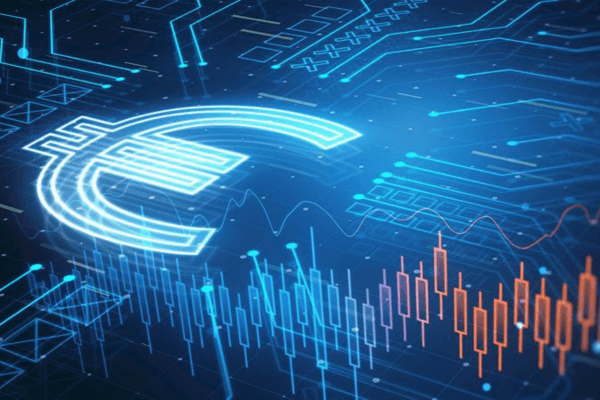
The European Union, through the ECB (European Central Bank), is determined to enter the world of cryptocurrencies and combat the deregulation characteristic of this financial asset with Euro Digital, a centralised and regulated cryptocurrency.
The discussion has been going on for a few years now, but it seems that this time European consumers will be able to use a digital currency with the ECB's seal of approval for their transactions, although there is no concrete date for its implementation.
After a period of research into the virtues and application of the Digital Euro that ended last October, the ECB has moved on to the phase of analysing the results of its study, and it is hoped that light will soon be shed on how the European digital currency will work and when it will be launched.
With more and more consumers and businesses wondering about the new European cryptocurrency, we'll try to clear up some doubts based on what has been made public by the European authorities so far.
What is Euro Digital?
What will be Europe's first centralised and regulated cryptocurrency is being heralded as more stable than the cryptocurrencies currently circulating around the world and could be used not only as a digital means of payment, but also for face-to-face payments contactless by card or mobile application.
This will only be possible because, like our euro, the Digital Euro will be integrated into international payment systems and will be under the "command" of a European Digital Bank which, in practice, will be linked to the ECB and will operate along the same lines as it does.
Basically, when it comes to online transactions or transfers, everything will be the same as it was up until now with the euro, even in terms of the value of the currency, since it will be worth the same as the euro.
As with the online payments with euros, when a customer who has purchased digital euros wants to buy a certain product or service on a website or MarketplaceThe retailer simply needs to have a payment method suitable for this type of digital currency.
This is the case with REDUNIQ E-Commerce, a solution that allows your online shop to receive e-commerce payments with Visa and Mastercard debit and credit cards and the turnkey solution REDUNIQ@Payments that if online sales without a websiteThe online payment system will allow you to receive online payments by email, SMS, WhatsApp, by card, ATM reference or MB WAY, without having to worry about membership costs, fixed costs, monthly fees or integration.
What will it cost to pay with the European Digital Currency?
Based on the information available to date, an online or face-to-face payment with digital euros will not cost any more than its physical counterpart does today.
In fact, the European institutions are keen to emphasise that the security, user-friendliness and gratuity that we have today with the physical euro will be exactly the same as those we will have with the Digital Euro.
So, in practice, cashless payments with digital euros will be the same as many others we have today, i.e. they will be just another payment solution, but they will add the possibility of automatic transactions.
Is consumer data protected with Euro Digital?
The security of personal data is something that has gained in importance in recent years, especially with the advent of cryptocurrencies, but we can already be sure that by using digital euros for payments, European consumers and businesses will not have to share their data with any third party.
This protection includes the user's identity, payment data and metadata relating to the transaction (the IP of the device used for payment, for example).
It cannot be emphasised enough that, as the currency of the European Central Bank, the Digital Euro will not serve as a speculative financial product like unregulated cryptocurrencies, i.e. it will be a stable, risk-free currency and will respect European directives on privacy and the protection of user data.
Will euro notes and coins disappear?
Despite the fact that we are living in the midst of the rise of the cashless paymentsWith the launch of Euro Digital, euro coins and banknotes will not disappear, but will become an auxiliary means of payment.


